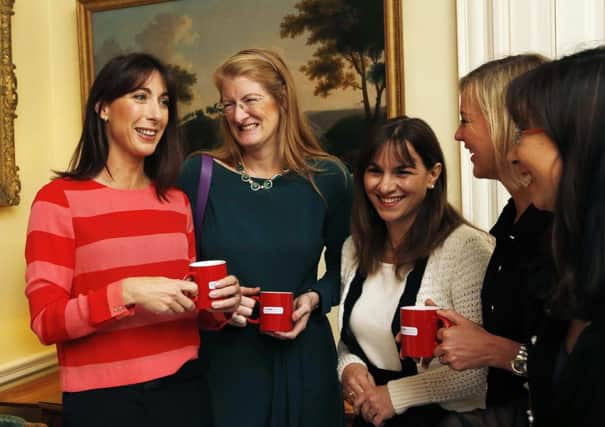Samantha Cameron welcomes mothers of disabled children


The Prime Minister’s wife, whose son Ivan was born seriously disabled and received round-the-clock care for cerebral palsy and epilepsy before his death in February 2009, helped launch a new ambassador programme for the charity Contact a Family.
Over tea and coffee in Downing Street, Mrs Cameron and a group of professional working mothers talked about the charity’s work supporting the families of disabled children.
Advertisement
Hide AdAdvertisement
Hide AdShe said: “Contact a Family gives invaluable help and advice to families with disabled children.
“I’m delighted to help launch its ambassador programme which will ensure Contact a Family has the long-term support it needs to continue its important work with families across the UK.”
Srabani Sen, the charity’s chief executive, said: “The money raised through our ambassador programme will have a huge impact on our work by enabling us to broaden and strengthen our essential services and to offer even more families who care for disabled children high-quality support and advice.”
David Cameron frequently refers to Ivan, including in his party conference speech last year when he said the Paralympics would help ensure that in future people encountering disabled children will see “the boy and not the wheelchair”.
Advertisement
Hide AdAdvertisement
Hide AdEarlier this year on a visit to Oxford University he met a researcher working on Ohtahara syndrome, which Ivan suffered from.
He said: “I will never forget when we were first told of the diagnosis of a desperately ill and disabled child. Then when you want to know more about it, there’s very little that we know.
“It’s one of the many parts of medical science where we have huge breakthroughs still to make.”